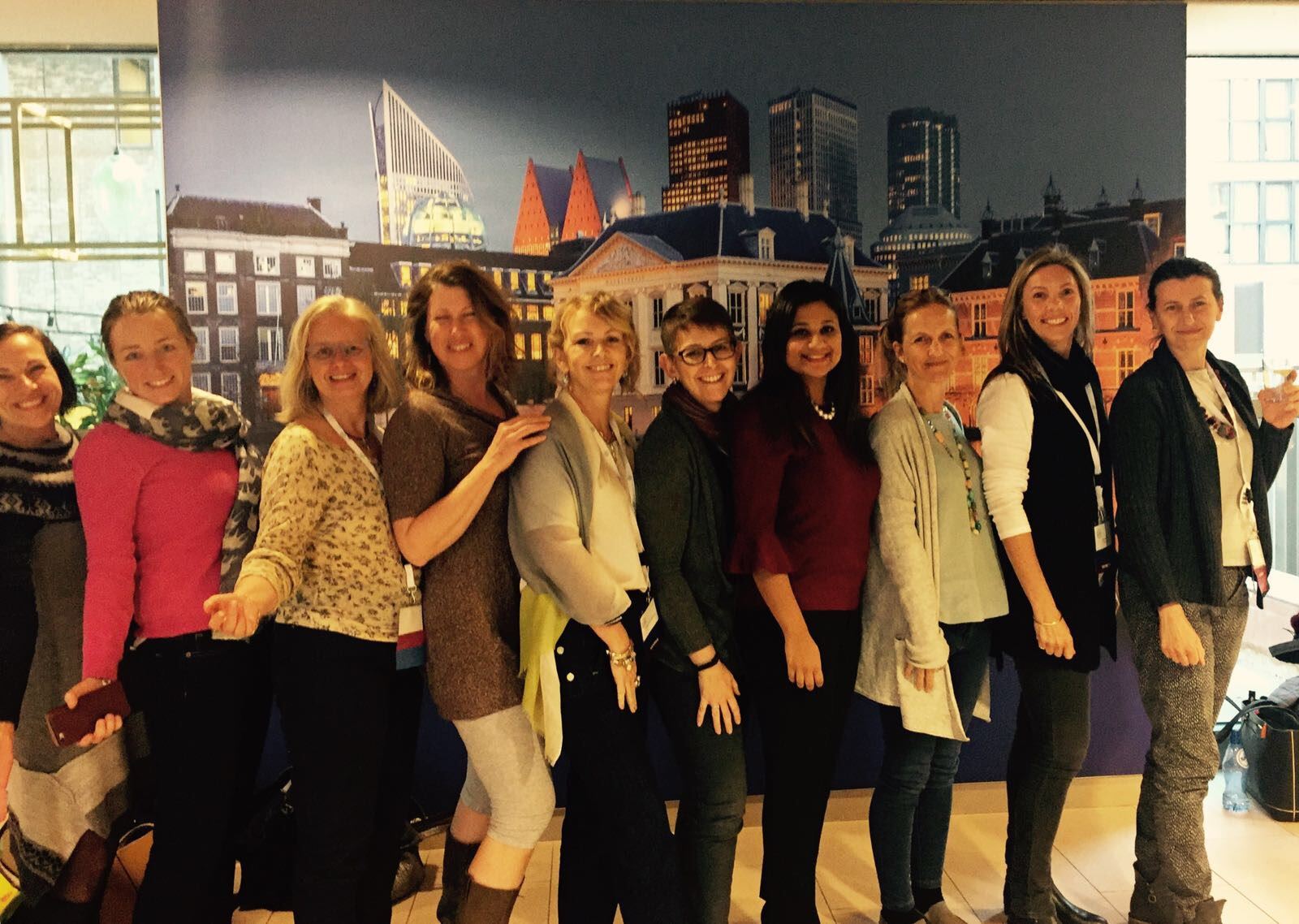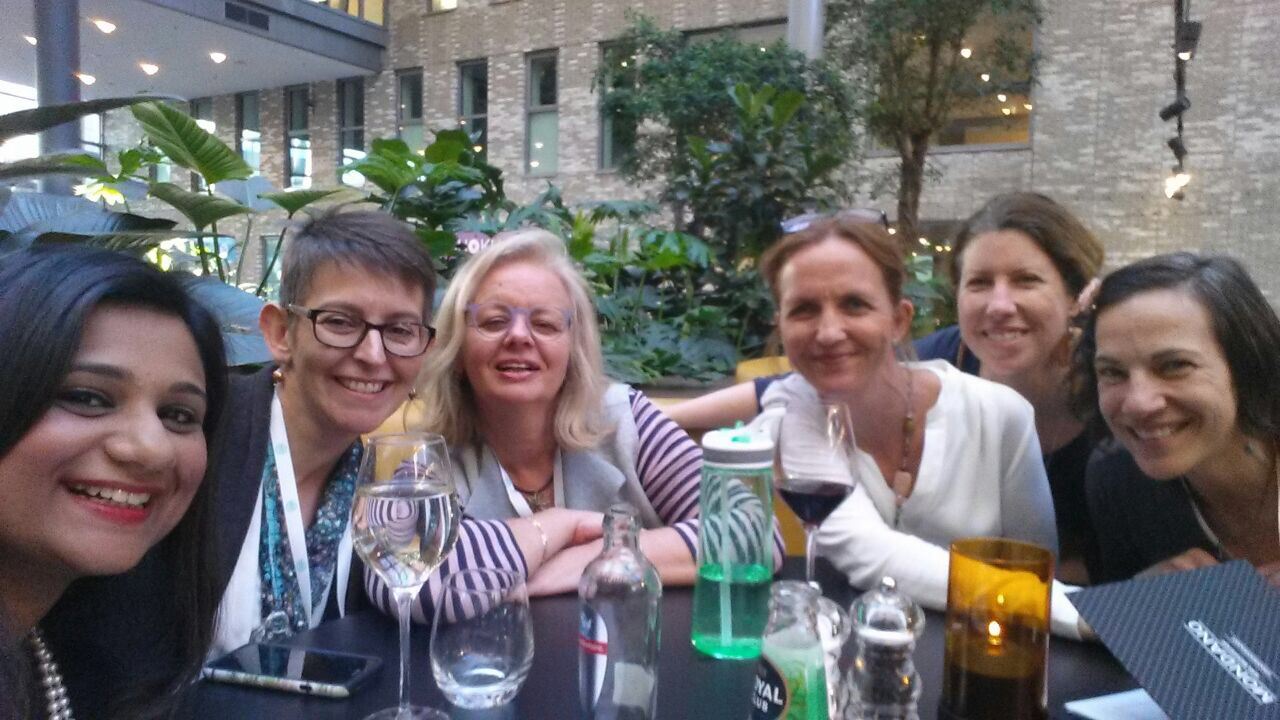PPWR Reflections 2017: FIGT First Impressions
In this week's post, Sarah Stoner has jotted down her impressions from the FIGT conference. Sarah touches on a key challenge that TCK's might face when our adventurous selves move into a monocultural day-to-day.
It is our unique differences and experiences abroad that unite our tribe and bring our community together. However, for some of us, our international selves feel far behind as we adapt to a monocultural community, we now call home.
Have I stayed in the same place too long? What if my last international trip was 5 years ago? That is totally okay. Experiences never leave you.
Am I still a TCK? Do I still fit in with my TCK tribe? The answer is always YES!
 (The Writing Team at FIGT 2017)
(The Writing Team at FIGT 2017)
A few weeks before FIGT, I lost my toenail. Skiing ‘accident’ (tight new boots). It looks really gross. Clearly, a toenail belongs there.
In my life, too, a piece is missing. I live in the US, my ‘passport’ country, as an adult Third Culture Kid (ATCK). I’m a multicultural mama raising my kids in a monoculture. Like most of us ATCKs, I try to adapt. Which means putting a sock over it. Wearing closed-toed shoes. Because, somehow, in the busy-nesses of raising a family, talking about my ‘old’ life with people in my rural town feels… decorative. Showy and nonessential. Like a toenail.
Until I stumble across a call for writing scholars for Families in Global Transition (FIGT), I’d set aside my TCK past to manage an overwhelming present. Two young kids. Five contract jobs (editor of nonprofit journals), constantly overlapping. Twenty acres of rural land to tend to, from a house that, until recently, was off-the-grid and entirely solar powered. Adventure enough!
I apply. I’m awarded the position, along with three other women. All of whom live overseas or work in the intercultural world. Suddenly, I’m face-to-face with my TCK-on-a-shelf self.
I feel like the odd man out. I am the only one not living an expat life, currently or even recently. When I log on to figt.org, I find myself looking at the circular FIGT logo… No, I stare into it as if it’s a crystal ball for my questions. How do I fit in to this community? I’m not living the overseas life. I’m not in global transition. I’m raising my kids in a monoculture.
Spoiler alert: Turns out, there is room for everyone at the FIGT table.
Families in Global Transition… current, former. And in support of. We all have a place in the community of FIGT. I walked away from conference feeling awakened, connected, inspired. Hearing people’s stories awakens my own. Learning about solutions being brainstormed for TCKs today – including the amazing Safe Passage Across Networks (SPAN) groundwork being laid by FIGT members joining forces – inspires and reassures me. I have countless notes, ideas, thoughts bubbling.
It’s hard to fit all that the FIGT 2017 gathering offered up in one – or even ten – attempts. I’ll do my best to begin.
Indelibly, FIGT 2017 left its mark. Unlike a missing toenail, three points imprinted like footprints in soft sand – guideposts for me in moving forward:
1.Tell Your Story
The theme of integrating with our whole selves by telling and claiming our TCK and expat stories showed itself in a variety ways: research numbers, sub-group studies, kitchen table sharing. In the Ignite sessions, Maria Lombart explained the importance of revisiting and returning to the places where you came from – another way to integrate your stories and memories. Janneke Muyselaar-Jellema reminded me of the importance of sharing my stories with my children. “Kids who know their families stories fare better and are more resilient,” she explained. “Tell your stories! Because that’s the thing about being a TCK – we hide who we are in order to adapt. Stories fare better and are more resilient,” she explained.
2.Find a Place Where Others Are Also Different
“Choose a place where enough people are also different, who know what it is to be different.” That’s Cliff Gardner, in the plenary panel discussing different ways to approach connecting your past to your present. Ah, if I could turn back time… However, now, with this new lens, I can view and untangle my own repatriation process. Perhaps, with more compassion for how I arrived at where I am now. And to consider how to best move forward from here.
3.Claim and Name Who You Are
Along the same lines as telling your story: “Claiming and naming who you are is a risk,” said Marilyn Gardner, in the panel on connecting your multicultural past to your present. And risk taking has a high pay-off potential… of becoming more whole, more connected to your full self. The fantastic thing is, you can’t name who are you are… until you are clear on who you are. And where you want to go. It is a fantastic opportunity for those of us prone to adapting – to find ourselves, to define our values as identity boundaries.
Nothing is missing when our selves are revealed. We are whole when we belong. Thank you, FIGT. In your community, I find my way back home.

-----Thanks Sarah for your contributions to the community!

